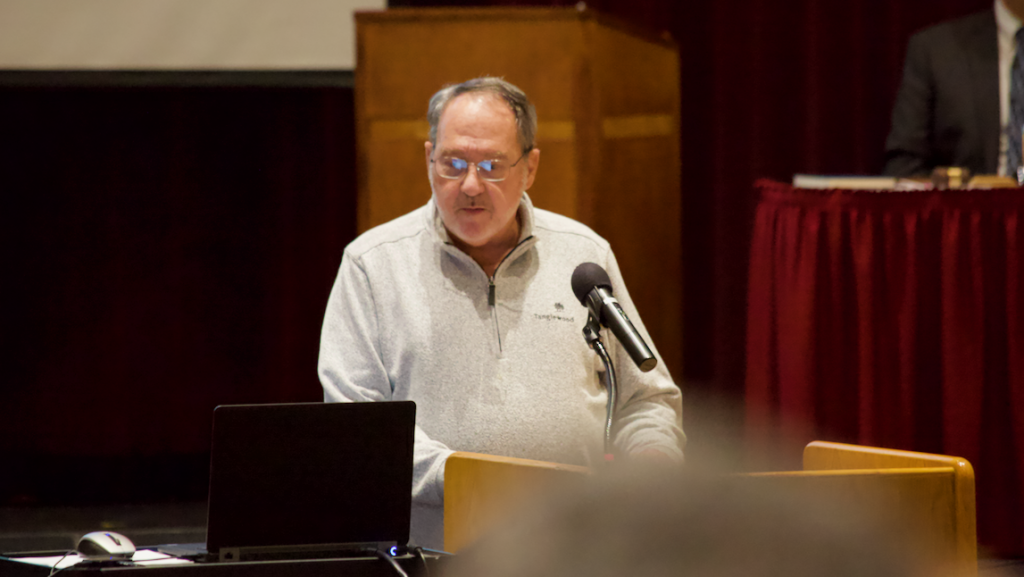
Chair of the Climate Advisory Committee David Zeek
Town Meeting voted on November 16 to approve Article Ten of its warrant, which is a ban on single-use, thin film plastic bags for retail use in Reading. This was a result of an instructional motion from Town Meeting last May that directed the Climate Advisory Committee to investigate possible solutions to the plastic bag issue and return to town meeting with a bylaw that addressed the issue. David Zeek, chair of the Climate Advisory Committee, presented the motion. Zeek indicated that the committee had conducted conversations with local businesses and had held a public hearing on the proposed bylaw prior to presenting it to Town Meeting. 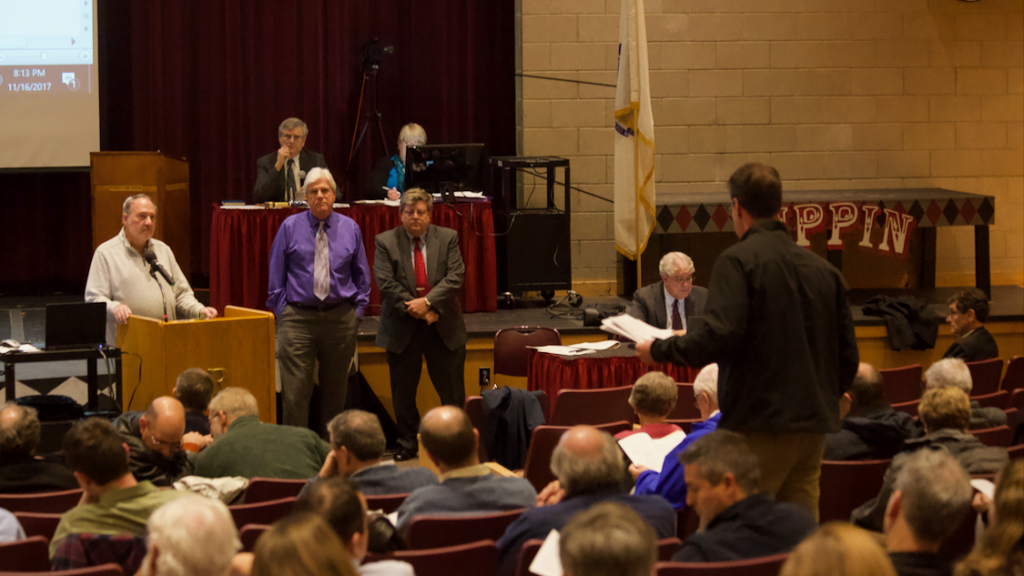 Zeek’s presentation included three primary reasons why the bags should not be used in town. The first was the danger posed to animals as the bags do not decompose and are often consumed by animals or are found in the wild strangulating them. The second was the issue with the bags clogging the recycling machines used by Reading’s recycling contractor. A reduction in the use of the bags would be a first step in alleviating the problem. The third was the concern that the bags created a massive litter problem. Town Meeting member Peter Brown describing them as “ubiquitous.” It is estimated that Reading uses approximately eight million of the bags annually and that only five percent of them are recycled. It is the goal of the bylaw to encourage the use of reusable bags whenever possible. “It is not about regulating business, but about changing our behavior,” Zeek added.
Zeek’s presentation included three primary reasons why the bags should not be used in town. The first was the danger posed to animals as the bags do not decompose and are often consumed by animals or are found in the wild strangulating them. The second was the issue with the bags clogging the recycling machines used by Reading’s recycling contractor. A reduction in the use of the bags would be a first step in alleviating the problem. The third was the concern that the bags created a massive litter problem. Town Meeting member Peter Brown describing them as “ubiquitous.” It is estimated that Reading uses approximately eight million of the bags annually and that only five percent of them are recycled. It is the goal of the bylaw to encourage the use of reusable bags whenever possible. “It is not about regulating business, but about changing our behavior,” Zeek added.
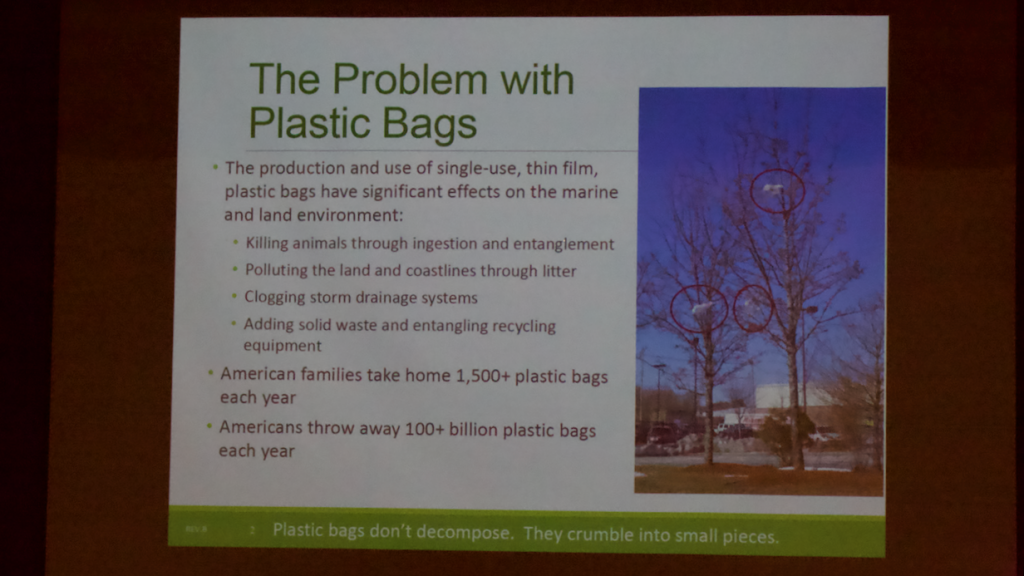
The actual bylaw will forbid retailers from providing plastic bags thinner than three-thousandths of an inch thick to consumers at the checkout of the store. Non-checkout bags such as those for produce, frozen foods, and laundry bags would not be affected. Also not covered by the ban is what a consumer chooses to bring to a store. Consumers may continue to try to reuse the thin bags until their supply is exhausted. Fifty-eight communities in Massachusetts have already enacted similar bans, including Wakefield just ten days ago. Town Meeting Member Nancy Docktor also pointed out to Town Meeting that over forty countries have also enacted plastic bag bans.
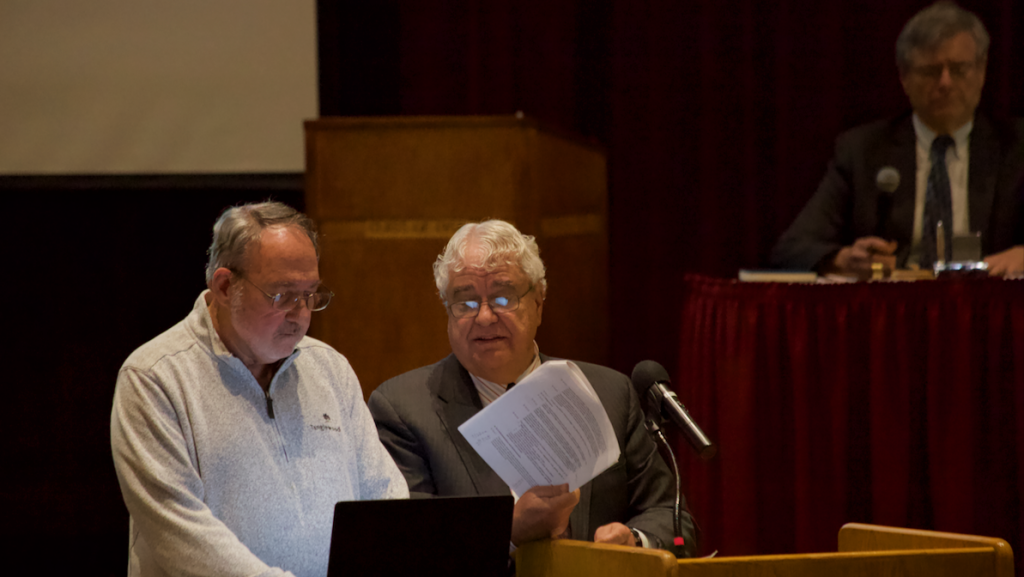
David Zeek and Town Council Ray Miyares
The bags should be phased out over six months and enforcement of the bylaw will be administered by the Department of Public Works. The penalty for a first violation will be a warning. A fifty dollar fine will be assessed for a second violation, and a two hundred dollar fine will occur for any violations after the first two. Businesses will also be allowed a six-month waiver if the bags they need to acquire are not yet available.
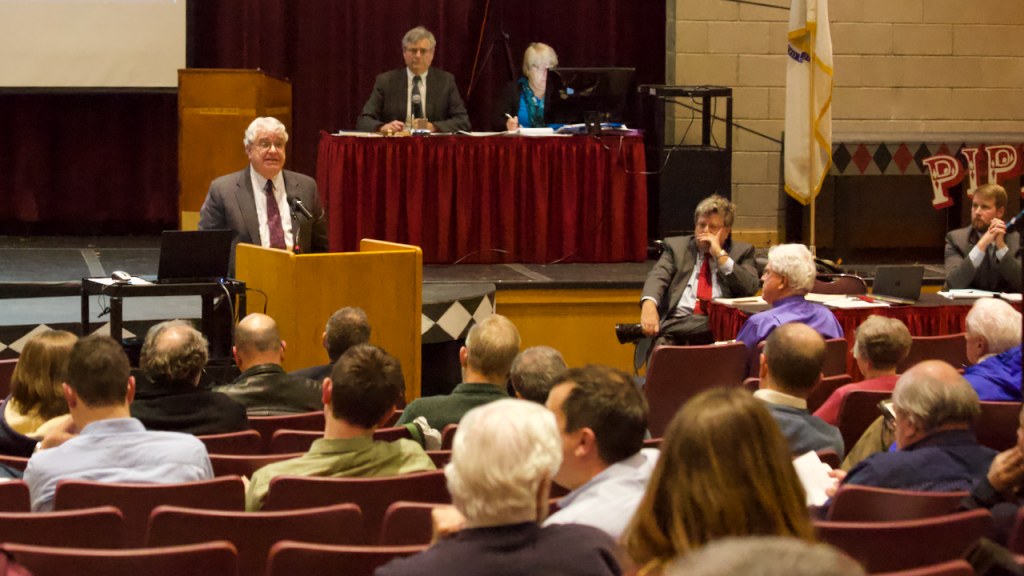 Many Town Meeting members suggested amendments to the motion to help clarify the text of the bylaw. Several focused on making it clear the businesses will not be able to provide the bags, but individuals may still use them. Several Town Meeting members, including Gary Phillips, made impassioned pleas for the process to be slowed down. Phillips felt that town stakeholders had not been given enough voice in the decision. He also referred to the bylaw as the wrong solution to the right problem. Phillips advocated an expanded recycling program as opposed to a ban. Debate on the article lasted over two and a half hours before a vote finally occurred.
Many Town Meeting members suggested amendments to the motion to help clarify the text of the bylaw. Several focused on making it clear the businesses will not be able to provide the bags, but individuals may still use them. Several Town Meeting members, including Gary Phillips, made impassioned pleas for the process to be slowed down. Phillips felt that town stakeholders had not been given enough voice in the decision. He also referred to the bylaw as the wrong solution to the right problem. Phillips advocated an expanded recycling program as opposed to a ban. Debate on the article lasted over two and a half hours before a vote finally occurred.
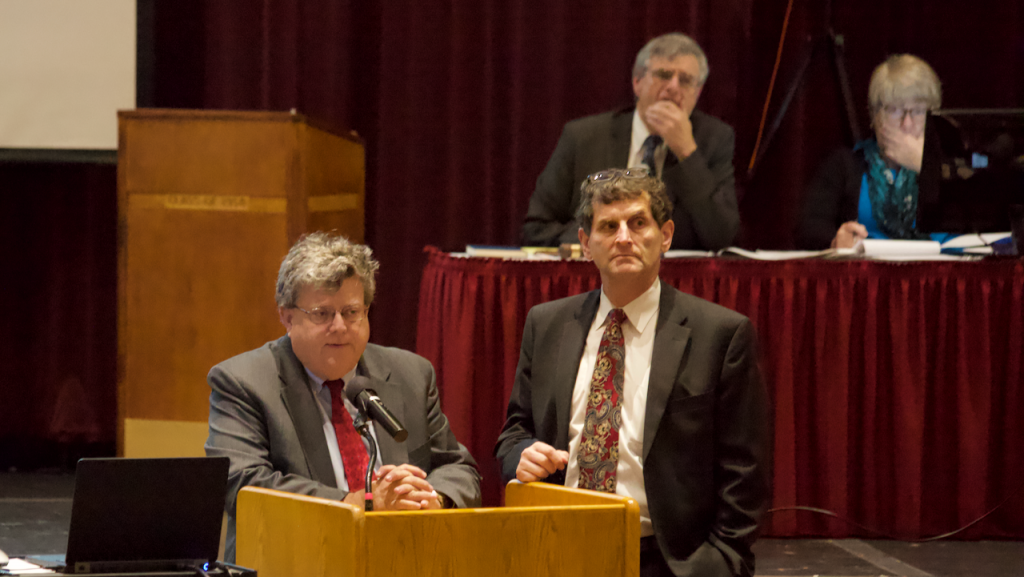
Town Manager Robert LeLachuer and Selectmen Chair John Arena
To open the night,Town Meeting passed Article Nine, which featured bylaw language amendments that will bring the Bylaws into agreement with the new Town Charter. In a close 66-52 vote, the members also passed an instructional motion to direct the Bylaw Committee to offer changes removing all gender-specific language from the Charter and Bylaws and to suggest a “a more appropriate term” to the word “Selectmen.”
The Subsequent Town Meeting adjourned sine die at 10:52pm.
